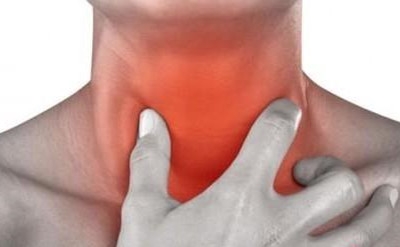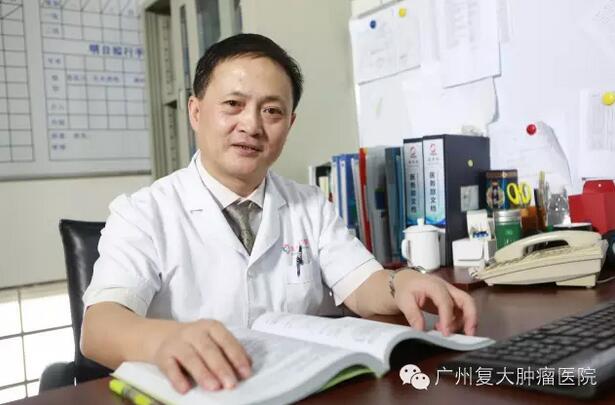In our daily life, many people have the eating habit of eating very hot food, such as hot noodle, hot pot, boiling hot porridge and kungfu tea because it is generally thought that hot food tastes better. However, eating hot food is not a good habit in that frequently eating hot food will injure the esophagus and even cause esophagus cancer.

Case analysis
Mr. Chen, 68 years old, was found to have discomfort in throat when swallowing food several months ago. He did not pay any attention to it until the dysphagia became worse. He went for physical examination at a local hospital and was diagnosed with advanced esophagus cancer. Doctors learned that Mr. Chen has been fit like a fiddle however he has been holding a habit for several decades - he likes eating hot food and having hot Kungfu tea, which are suspected to be closely related with his development of esophagus cancer.
The esophagus is a long and narrow fibromuscular tube through which food passes, aided by peristaltic contractions from the pharynx to the stomach. Esophagus cancer is tumor growing on the long and narrow tube. As tumor grows, it will block the esophagus. Advanced esophagus cancer patients even suffer from such pain as unable to drink a mouthful of water.
How to prevent esophagus cancer
China is one of the countries with the highest rate of esophagus cancer with the number of incidence ranking the first in the world. It causes about 210,000 deaths every year. What’s even worse is that many patients are at advanced stage upon diagnosis. What should we do to prevent esophagus cancer?
According to Prof. Qian Wei from Guangzhou Fuda Cancer Hospital, the pathogenesis of esophagus cancer is unclear as of now. It is generally believed that the development of esophagus is closely related with eating habit, living area and family history. Hence, the prevention of esophageal cancer should start from these aspects.
Preventive strategy
1. Stop eating very hot food and have tea and porridge below 50℃.
Prof. Qian Wei reminded that an increasing number of researches have shown that eating very hot food is closely related with the development of esophageal cancer. The inner wall of esophagus consists of delicate mucosa which can only tolerate a temperature of 50℃-60℃, the mucosa of esophagus will be damaged if the temperature is higher than that. Frequent intake of very hot food, such as hot kungfu tea, hot pot, will do severe damage to the oral cavity, esophagus and gastric mucosa. If the damaged mucosa is burned while it’s still healing, chronic inflammation of oral mucosa, esophagitis might be inflicted. Over time, such an eating habit will induce qualitative change of mucosa and even cancerous changes.
2. Quitting smoking and drinking. Long-term use of cigarettes and high-concentration liquor are the common risk factors for esophagus cancer. Many people know about the risk factors but few people can actually do it.
3. Developing a good eating habit. A diet high in fresh vegetable, fruits, less in pickles and salt-cured meat and free of moldy foods is linked to a lower risk of esophagus cancer, which is the same in gastric cancer prevention.
It is believed that taking food rich in nitrosamines, such as preserved pickles, salted fish is also a high risk factor for esophagus cancer.
4. Timely detection and treatment of precancerous lesions. The precancerous lesions of esophagus cancer include Barrett’s esophagus and atypical hyperplasia. The former, closely related to the development of esophagus cancer, can be alleviated after treatment. The detection of precancerous lesions needs the assistance of endoscopy.
How to detect esophagus cancer at an early stage?
Warning signs
Esophagus cancer is usually occult in onset and presents no symptoms at an early stage. Some patients might have sensation of foreign body in the esophagus or swallowing difficulty. Others might have burning pain, needle pain or stretching pain behind the substernal region when swallowing food.
Progressive esophagus cancer patient often go to a doctor when they have difficulty in swallowing, which is often experienced first with solid foods and later with softer foods and liquids. It is often accompanied by vomiting, upper abdominal pain and weight loss.
The prominent symptom of esophagus cancer is progressive difficulty in swallowing, by which time the tumor is already in an advanced stage. Early detection, early diagnosis and early treatment should be emphasized in all diseases. Five-year-survival time can reach 70% to 80% if esophagus cancer is treated at an early stage. Some patients, who are detected at an early stage, can live a normal life after undergoing operation for several years. Hence, it is of great significance to detect cancer at an early stage.
Some suspicious symptoms: mild or occasional chocking while swallowing food; the sensation of foreign body not related with food intake; dry pharynx and constriction in neck; the sensation of food stasis in one part of the esophagus while taking food, etc. The symptoms might be helpful to detect early disease. However, symptoms are not the best way to detect esophagus cancer as people won’t feel it until the tumor grow big enough to affect swallowing.
Endoscopic examination
Attention should be paid to the above-mentioned symptoms. Encoscopic examination should come in if the changes are to be found while no symptom is present.
High-risk population should be vigilent
In China, Chaoshan area of Guangdong, Taihang Mountains area (including a dozen of counties and cities, such as Linzhu, Henan, Cixian, Hebei, Yangcheng, Shanxi), Shan-Yu-Er Qinling Mountains, Er-Yu-Wan Dabieshan Mountains, the border land of Fujian, Guangdong and Jiangxi are high-prevalence areas of esophagus cancer. People who are from these places should pay more attention as the incidence rate of esophagus is still high even if people from high-prevalence area moved to a low-prevalence area and the incidence rate of esophagus among people from high-prevalence area is 5-8 times higher than that of natives. People with positive family history of esophagus cancer should keep vigilant.
Rome is not built in one day. The development of esophagus cancer is the same. People over 40, especially those who are from or living in high-prevalence area of esophagus and those who are hot food and pickles eaters and alcohol and cigarette users should see a doctor in time if the symptoms of sensation of foreign body in esophagus and slow swallowing present. What is more important is that people should do an endoscopic examination every five years to detect atypical hyperplasia of esophagus at an early stage.
Prof. Qian Wei noted surgical resection can be done for early stage esophagus cancer patient while Photodynamic Therapy (PDT), Hepasphere, radiotherapy, stent implantation can be done for advanced stage esophagus cancer patients.
(extracted from YXJ-ZL)
---------------------------------------------------------------
Expert profile

Qian Wei: M.D. , associate chief physician, expert in cardiothoracic surgery of Fuda Cancer Hospital
After graduated from Military Medical School of the Secondary Military Medical University, he worked in Cardiothoracic Surgery Department of Changhai Hospital affiliated to the Second Military Medical University. From 1995 to 2010, he furthered his study in Wayne State University and Medical School of University of Michigan successively at his expenses. He won the First Prize and Third Prize of Army Science and Technology Award, All Army Major Science and Technology Award during Ninth Five-Year Period, Cardiothoracic Surgery Youth Paper Award and 2011 Talent Grant by Wujiang, Jiangsu. He has published several papers in core journals at home and abroad. He has over 25-year clinical working experience in cardiothoracic tumor surgery. He has acquired the latest information and diagnostic and treatment technology for cardiothoracic tumor surgery.
Being good at minimally invasive thoracoscopic surgery, such as pulmonary bulla resection, thymoma resection, resection of primary neurogenic tumors of posterior mediastinum and radical resection of pulmonary carcinoma; radical surgery for esophageal carcinoma of various kinds, severe thoracic trauma treatment. He has rich experience in handling elderly patient and critically-ill patient during perioperative surgery.